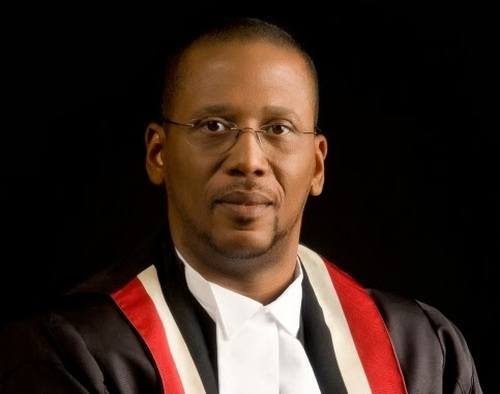(Trinidad Guardian) The Law Association will have to wait a little while longer to find out if it can resume its investigation into misconduct allegations levelled against embattled Chief Justice Ivor Archie.
Five Law Lords of the Privy Council yesterday reserved judgment in Archie’s appeal in which he is challenging the decision of three of his colleagues to dismiss his lawsuit over the investigation.
However, an abrupt end to the hearing at the United Kingdom’s Supreme Court in London, England, had some attorneys questioning whether the panel had already made up its mind.
Archie’s lawyers Phillip Havers, QC, and newly appointed Senior Counsel Ian Benjamin spent a little over two hours addressing the panel before they took a break.
Senior Counsel Christopher Hamel-Smith was expected to respond to their submissions when the court resumed but was later informed that his contribution was not required.
“Mr Hamel-Smith, despite the eloquence of Mr Havers and Mr Benjamin, the Board has given this matter careful consideration over the short adjournment and has reached the conclusion that we don’t need to call upon you. We will now take time to consider the reasons for that announcement which we will let you know as soon as we possibly can,” Baroness Brenda Hale, who led the panel, said.
Some legal sources, who spoke to the T&T Guardian, suggested that the statement from the panel could be interpreted to mean that it (the panel) saw no merit in the appeal and hence did not need further submissions from the association. Others suggested that it could mean that it had no legal issues to be resolved due to alleged changes in the association’s stance on the investigation.
Whatever the reason, it will only be revealed when the panel gives its judgment on a date that its to be announced by it.
During yesterday’s hearing, Havers submitted that the investigation was unlawful as it mimicked the process for the removal of a judge under S137 of the Constitution.
Under the section, the President appoints a tribunal after misconduct allegations against a CJ or judge are referred by the Prime Minister.
The tribunal, which includes a chairman and at least two other members, all with appellate judicial experience in Commonwealth jurisdictions, will then investigate. The tribunal reports to the Privy Council, which then gives the President recommendations on what action, if any, should be taken.
Havers pointed out that the association had repeatedly claimed that the investigation was to determine if allegations, made against Archie in a series of newspaper reports, last year, were true and if so to hold him accountable.
However, he noted that in its submissions in the appeal, the association is alleging that the investigation was not a fact-finding mission and was merely to determine if the allegations were sufficient to refer to the Prime Minister, as required under the constitution.
“The difficulty the respondent has is that is not what the evidence shows,” Havers said.
Asked by Lord Jonathan Sumption over whether the procedure adopted by the association was similar to the work of journalists, Havers said yes but noted that the association’s exercise would command more public interest.
“There is no restriction to free speech or freedom of the press, nor are judges above public scrutiny,” Havers said as he alleged that the investigation had a devastating effect on Archie’s professional reputation.
Questioned by Sumption on what action the association could take besides referring the allegations, Havers suggested that its members may pass a motion of no confidence in him as done last year following the fiasco caused by the short-lived judicial appointment of former chief magistrate Marcia Ayers-Caesar.
“There is no reason why they should not do that,” Sumption said. Havers agreed.
Lords Robert Reed, Brian Kerr and Nicholas Wilson also sat on the appeal panel.
Archie was also represented by John Jeremie, SC, and Kerwyn Garcia. The association was also represented by Jason Mootoo, Rishi Dass and Robin Otway.

